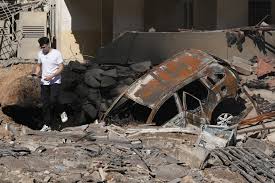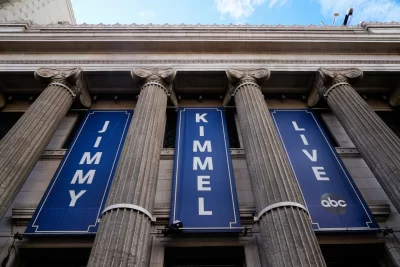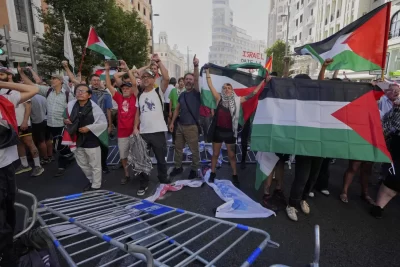
JERUSALEM — The first apparent Israeli airstrike on central Beirut in nearly a year of conflict leveled an apartment building early Monday, hours after Israel hit targets across Lebanon and killed dozens of people as Hezbollah sustained heavy blows to its command structure, including the killing of its leader, Hassan Nasrallah.
The airstrike hit a multistory residential building, according to an Associated Press journalist at the scene. Videos showed ambulances and a crowd gathered near the building in a mainly Sunni district with a busy thoroughfare lined with shops.
The airstrike killed at least one person and wounded 16, said an official with Lebanese Civil Defense, who spoke on condition of anonymity because he was not authorized to speak to the media. He said the person killed was a member of the al-Jamaa al-Islamiya, or the Islamic Group, a Sunni political and militant group that is allied with Hezbollah.
The group is not known to have played any meaningful role in the current conflict between Israel and Hezbollah.
A Palestinian leftist faction in Lebanon said three of its members were killed in the airstrike. The Popular Front for the Liberation of Palestine said in a statement early Monday that its military and security commanders in Lebanon, and a third member were killed in the attack.
In the past week, Israel has frequently targeted Beirut’s southern suburbs, where the militant group Hezbollah has a strong presence — including a major strike on Friday that killed Nasrallah — but had not hit locations near the city center.
Israeli officials had no immediate comment.
Earlier, Hezbollah confirmed that Nabil Kaouk, the deputy head of the militant group’s Central Council, was killed Saturday, making him the seventh senior Hezbollah leader killed in Israeli strikes in a little over a week. They include founding members who had evaded death or detention for decades.
Hezbollah also confirmed that Ali Karaki, another senior commander, died in the strike that killed Nasrallah. Israel says at least 20 other Hezbollah militants were killed, including one in charge of Nasrallah’s security detail.
The Lebanese health ministry documented at least 105 people killed around the country in airstrikes Sunday. Two strikes near the southern city of Sidon, about 45 kilometers (28 miles) south of Beirut, killed at least 32 people, the Lebanese health ministry said. Separately, Israeli strikes in the northern province of Baalbek Hermel killed 21 people and injured at least 47. There were other strikes.
The Israeli military previously said it also carried out another targeted strike on Beirut, but did not immediately provide details.
Lebanese media reported dozens of strikes in the central, eastern and western Bekaa and in the south, besides strikes on Beirut. The strikes have targeted buildings where civilians were living and the death toll was expected to rise.
In a video of a strike in Sidon, verified by The Associated Press, a building swayed before collapsing as neighbors filmed. One TV station called on viewers to pray for a family caught under the rubble, posting their pictures, as rescuers failed to reach them. The Lebanese health ministry reported at least 14 medics were killed over two days in the south.
President Joe Biden said Sunday he would speak soon with Israeli Prime Minister Benjamin Netanyahu, and believes that an all-out war in the Middle East must be avoided. “It has to be,” Biden told reporters at Dover Air Force Base in Delaware as he boarded Air Force One for Washington.
Meanwhile, wreckage from the strike on Friday that killed Nasrallah was still smoldering. AP journalists saw smoke over the rubble as people flocked to the site, some to check on what was left of their homes and others to pay respects, pray or simply to see the destruction.
In response to the dramatic escalation in Israeli strikes on Lebanon, Hezbollah significantly increased its attacks in the past week, from several dozen to several hundred daily, the Israeli military said. The attacks injured several people and caused damage, but most of the rockets and drones were intercepted by Israel’s air defense systems or fell in open areas.




